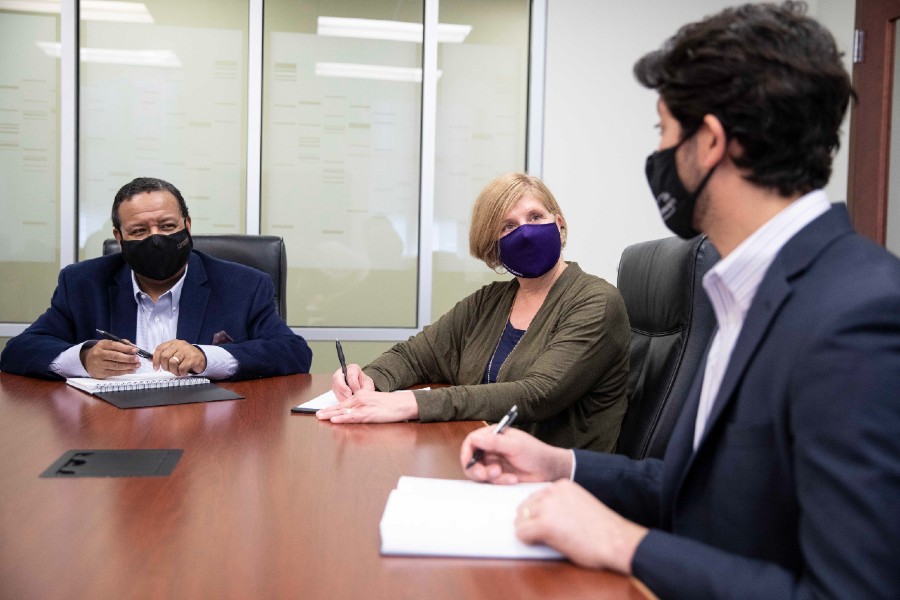Lipscomb conducts campus climate survey to inform the future
Insights on the racial and ethnic climate on campus will be used to equip Lipscomb for the coming years.
Janel Shoun-Smith | 615.966.7078 |

The members of Respect Leads: Lipscomb's Council on Diversity & Inclusion carried out the implementation of the race/ethnic campus climate survey and will advise on actions to take over the next year as revealed by the survey results.
Lipscomb University engaged the Racial Justice and Unity Center (RJUC), one of the nation's leading research firms that has partnered with more than 30 universities across the country, to conduct a campus climate survey to assess the racial and ethnic climate of the university, gather information and insights and provide essential training that will be invaluable to the university’s leadership in the future.
In early 2021 the survey was launched and sent to all Lipscomb University faculty, staff and students. Response was high, with 921 students and more than 500 faculty and staff completing the questionnaire, numbers that were far above the percentages experienced at other universities, said William Lofton Turner, special counsel to the president on diversity and inclusion.
“No one knows our university better than our own faculty, staff and students,” said Turner. “A climate survey allows us to quickly and easily gather their input, analyze the data and determine action steps.”
The survey is allowing the university to answer important questions such as:
- How are we doing with our efforts?
- Where are our strengths and weaknesses?
- Who is having positive and negative experiences?
- Why, where and how should we make changes?
- Which programs should we add, keep, or drop?
- Are we making progress?
“This survey will provide a better understanding of the racial dynamics at Lipscomb and in our society and will equip us with motivation, knowledge and the skill to do our part to bring about change,” said Turner. “The survey is designed to help Christian leaders to measure how equipped they are to work toward Biblical racial justice and unity.”
RJUC, a widely-respected and well-established Christian research and training organization that provides Bible-based training and assessment resources for Christian colleges and universities, was also contracted to conduct on-campus focus groups and executive leadership trainings incorporating the survey results.
Forty-two people participated in the focus group discussions held in March, including both students and employee survey respondents of various races and ethnicities picked at random to participate.
“All student groups reported having more overall positive experiences than negative experiences,” Turner said. “However there were negative experiences experienced by certain groups and they differ according to groups. We’ll be able to take that data to figure out better ways of addressing these issues.”
An in-depth and detailed analysis was provided by RJUC in May, including insight on:
- Individual perspectives regarding notions of race and diversity
- Climate perceptions regarding tensions and guidance on race and diversity
- Race and diversity efforts in courses, campus activities and administration
- Individuals’ participation in diversity efforts
RJUC is working with Lipscomb’s Executive Leadership Team to develop a training program incorporating these insights. This summer, the training will be provided first to executive and senior leadership and trustees, and following that to academic leadership, faculty, staff and students later in the year.
Lipscomb’s leaders are using the results of this climate survey to consider creating new programs, reviewing policies, determining next steps and providing broader training within the Lipscomb community.